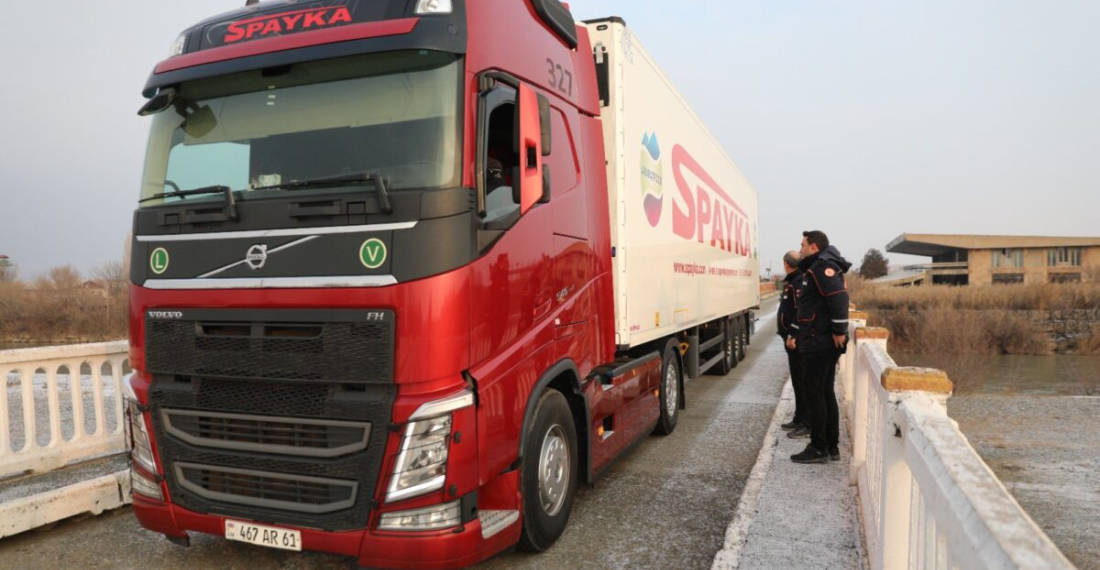The Secretary of Armenia’s Security Council Armen Grigoryan has told journalists at a briefing on Tuesday (14 February) that Armenia is "ready" for opening of the shared border with Turkey and normalisation of relations any time.
"The Armenian and Turkish sides are holding discussions on the issue and will continue the discussions, hoping that it will take place as soon as possible," Grigoryan said.
He added that an agreement on opening the border for nationals of third countries had indeed been reached last year between Armenia and Turkey, but said that no timeframe was discussed. The agreement was struck in July 2022, but changes on the ground have not yet materialised.
A second aid convoy crosses the Armenia-Turkey border late on Tuesday
Tweeting early in the morning on Wednesday, the Spokesperson for the Armenian Ministry of Foreign Affairs Vahan Hunanyan announced, "Armenia continues sending humanitarian aid to earthquake-affected regions. Late last night, trucks loaded with the second batch of humanitarian aid crossed the Armenian-Turkish border through the Margara bridge."
This was the second aid convoy sent by Armenia to Turkey following the devastating 6 February earthquake, which at the time of writing has killed over 40,000 people in Turkey and Syria.
The Armenian-Turkish border between the villages of Margara and Alican opened for the first time in 30 years on Saturday (11 February), to allow through the humanitarian aid for quake-affected people of Turkey.
Armenian and Turkish foreign ministers meeting in Ankara
Also happening on Wednesday (15 February), the foreign ministers of Armenia and Turkey, Ararat Mirzoyan and Mevlut Cavusoglu, are meeting in the Turkish capital Ankara.
After the talks they made a statement to the press, and Mirzoyan will then meet the Armenian rescue team that carries out search and rescue operations in the earthquake-affected city of Adiyaman, reports the Public Radio of Armenia.
Responding to news of the visit, the EU Special Representative for the South Caucasus and the Crisis in Georgia Toivo Klaar tweeted, "This is a historic visit following Armenia's decision to support its neighbour in need. Hopefully a harbinger of developments to come in the Turkey-Armenia relationship."






